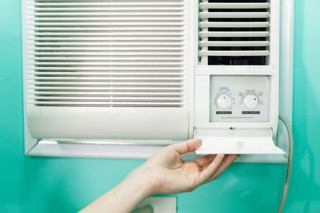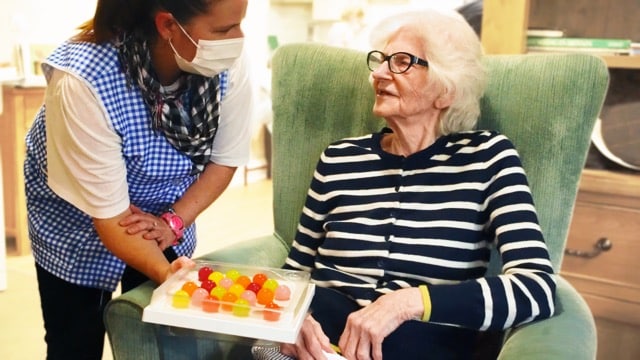Experts share essential heat safety tips as climate-related dangers increase for families living with Alzheimer’s and other forms of dementia.
As a heat wave sweeps across much of the U.S., families caring for loved ones with dementia are up against a hidden hazard: Extreme heat poses physical health risks. For people living with diseases like Alzheimer’s and their caregivers, it can heighten symptomatic behaviors like wandering, as well as impair a person’s ability to manage those risks.
“Extreme heat is especially dangerous for someone with dementia, because dementia can impair their ability to notice if they are developing heat stroke or dehydration,” said Jennifer Reeder, the senior director of educational and social services at the Alzheimer’s Foundation of America.
According to Nikki-Anne Wilson, postdoctoral research fellow at USNW Sydney’s Neuroscience Research Australia, extreme heat and the necessary — though sometimes disruptive — protocols that come with it can be especially confusing for someone with dementia.
“The situation can change quickly in an emergency, and this can be particularly overwhelming for people with cognitive issues,” Wilson wrote. “Understand that someone with dementia may become distressed when their routine is disrupted. So be prepared with some simple activities or comfort items, current medications, and any specific medical information.”
Reeder and the AFA offered a few “simple steps” to help caregivers keep loved one with dementia safe during the heat wave.
1. In extreme heat, watch for wandering
Caregiving experts say wandering behavior — common among people with Alzheimer’s — can escalate during seasonal changes. People with dementia may wander for a number of reasons: boredom, confusion, or a desire for fresh air or independence. During extreme heat, even a few minutes outside can trigger heat stroke — especially in older adults or those with medical vulnerabilities. And that can be life-threatening.
“It’s essential for family caregivers to know the risk factors and warning signs that can lead to wandering, address them, and create an emergency response plan,” Reeder said.
According to the AFA, families should identify “consistent and sustainable ways to support” the inclination to go for a meandering walk — in a safe environment. That might mean:
- Creating indoor walking paths with visual cues.
- Engaging in simple, purposeful tasks at home.
- Providing sensory or emotional stimulation through music, crafts, or conversation.
- Ensuring needs like hunger, thirst, and bathroom access are met.
It’s also smart to keep a recent photo, medical information, and a list of favorite or familiar places on hand in case your loved one does wander, experts advise. This can help law enforcement and community responders locate them faster.
1 in 6 Adults With Alzheimer’s Go Missing—Families on ‘Wandering’
2. Help your person stay hydrated — even if they don’t feel thirsty
One common effect of dementia is a diminished sense of thirst. That means people may not realize they’re dehydrated — and may need reminders or encouragement to drink.
Experts at the AFA suggest avoiding alcohol and caffeine and instead offering water or electrolyte-rich drinks at regular intervals, encouraging caregivers “to monitor fluid intake and encourage them to drink frequently.”
Popsicles, fruits like watermelon, and soups can also help boost hydration. Some innovative thinkers have even come up with more creative ways to help people living with dementia stay hydrated, including 95-percent-water jelly candies specifically designed to help people with dementia avoid dehydration.
https://www.beingpatient.com/dementia-dehydration-jelly-drops/
3. Recognize heat-related illness symptoms
Because dementia affects sensory perception and decision-making, the signs of overheating may go unnoticed. Warning signs include:
- Hot, dry, or red skin
- Muscle cramps
- Rapid pulse
- Headaches
- Dizziness or nausea
- Excessive sweating or confusion
- Sudden changes in one’s mental state
If you spot these symptoms, act quickly: Help your person rest in a cool space, offer fluids, apply cold compresses, and remove excess clothing.
“If the person faints, exhibits excessive confusion or is unconscious, call 911 immediately,” the AFA recommended.
STUDY: Older Adults Think Best When the Temperature is Just Right
4. Make a plan: Know where to cool down
If your home isn’t air-conditioned — or in the event of a power outage — seek out a local cooling center. These are often located in libraries, senior centers, or community buildings. You can call your city’s emergency management or health department to find one nearby.
Another pointer: Be prepared for blackouts. Fully charge phones and keep flashlights handy. Post emergency contacts near your loved one’s phone or fridge.
5. Choose weather-appropriate clothing
Dress your loved one in light-colored, breathable fabrics like cotton, and avoid layers. A sun hat can offer added protection if going outdoors is necessary — though shade and air conditioning are best during peak heat hours (10:00 a.m. to 4:00 p.m.).
“Try to support the person to make suitable clothes choices for the season by having cool, lightweight options easily available,” said Wilson at Neuroscience Research Australia.
Even when a person’s body temperature is optimal, sensory perception can still leave some people convinced that they are too cold, according to dementia care expert Teepa Snow.
“Their hands are cold,” said Snow. “In their mind, ‘OK, well, I need another layer.’ Versus, what I need is a warm towel on my hands for a few minutes, or what I need is a warm drink.”
6. Don’t go it alone
According to scientists including those employed by the U.S. federal government, extreme weather events are growing more frequent, and experts say it’s important to prepare not just for today’s heat wave, but for long-term safety and health.
If you live far from a loved one with dementia, arrange for a nearby friend or neighbor to check in regularly during extreme heat or cold. Keep emergency contacts and medical information easily accessible. And don’t hesitate to reach out for professional support, on a resource like the AFA’s free helpline, staffed by licensed social workers trained in dementia care, via phone (866-232-8484), text (646-586-5283), or web chat.





